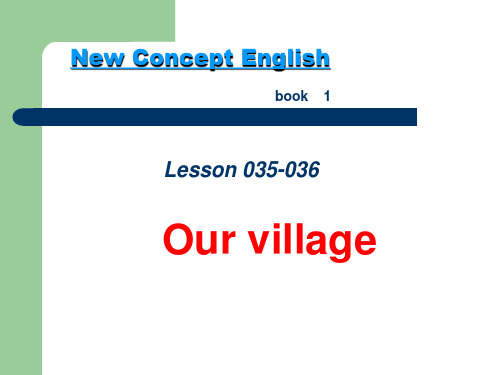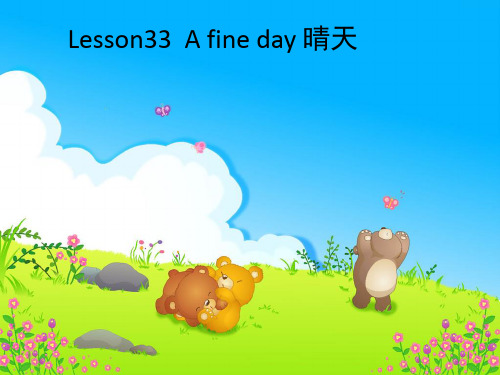新概念1 34-35课 方位介词 图片
- 格式:docx
- 大小:808.12 KB
- 文档页数:2




This is a photograph of our village。
Our village is in a valley。
It is between two hills。
The village is on a river.Here is another photograph of the village.My wife and I are walking along the banks of the river。
We are on the left.There is a boy in the water。
He is swimming across the river。
Here is another photograph。
This is the school building。
It is beside a park.The park is on the right。
Some children are coming out of the building.Some of them are going into the park.New Word and expressions 生词与短语photographn。
照片villagen。
村庄valleyn. 山谷betweenprep。
在……之间hilln。
小山anotherdet。
另一个wifen。
妻子alongprep。
沿着bankn. 河岸watern. 水swimv. 游泳buildingn。
大楼,建筑物parkn。
公园intoprep.进入本文参考译文这是我们村庄的一张照片。
我们的村庄坐落在一个山谷之中。
它们于两座小山之间.它靠近一条小河。
这是我们村庄的另一张照片。
我和妻子沿河岸走着。
我们在河的左侧。
河里面有个男孩。
他正横渡小河。
这是另一张照片。
这是学校大楼.它位于公园的旁边。
公园在右面。
一些孩子正从楼里出来。
他们中有几个正走进公园。
【课文】This is a photograph of our village。

